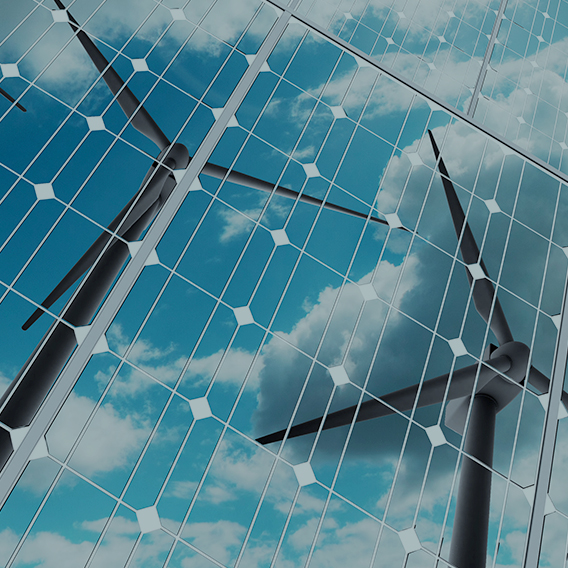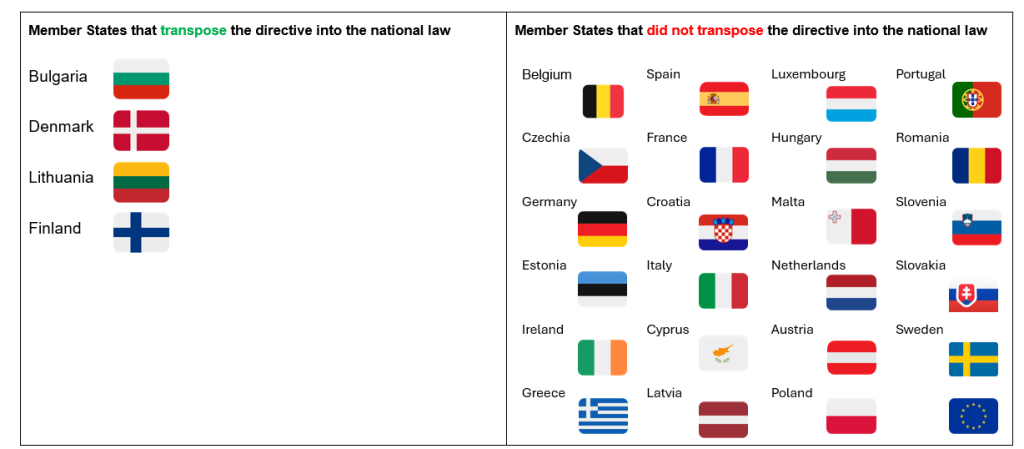Definizione di uno schema tipo di bando di gara per l’affidamento del servizio di gestione integrata dei rifiuti urbani
(DELIBERAZIONE 27 DICEMBRE 2024, 596/2024/R/RIF)
La Legge 481/95, dispone che L'Autorità di Regolazione per Energia Reti e Ambiente (ARERA, di seguito l’Autorità) deve garantire la promozione della concorrenza e dell'efficienza nei servizi di pubblica utilità, assicurare livelli di qualità adeguati, economicità e redditività dei servizi, con fruibilità omogenea su tutto il territorio nazionale e definire un sistema tariffario certo, trasparente e basato su criteri predefiniti, tutelando gli interessi di utenti e consumatori.
Allo stesso tempo la Legge 205/17 mira a migliorare la regolazione del ciclo dei rifiuti urbani, garantendo accessibilità, fruibilità e diffusione omogenee assegnando all'Autorità funzioni di regolazione e controllo in materia di rifiuti urbani, quali:
- Definizione dei livelli di qualità dei servizi.
- Diffusione della conoscenza e trasparenza delle condizioni di svolgimento dei servizi.
- Definizione di schemi tipo dei contratti di servizio.
- Predisposizione e aggiornamento del metodo tariffario per determinare i corrispettivi del servizio integrato dei rifiuti.
- Fissazione dei criteri per la definizione delle tariffe di accesso agli impianti di trattamento.
- Approvazione delle tariffe definite dagli enti di governo e dai gestori degli impianti.
- Verifica della corretta redazione dei piani di ambito, esprimendo osservazioni e rilievi.
Tenuto conto del fatto che il D.lgs. 201/22 predilige l’affidamento mediante concessioni di tutti quei servizi di interesse economico generale e che il servizio di gestione dei rifiuti urbani richiede, ai fini della sua efficienza, la traslazione del rischio operativo posto in capo al soggetto a cui è affidata la gestione, con la deliberazione 50/2023/R/RIF, l’Autorità ha avviato un procedimento per la predisposizione di schemi tipo di bando di gara per l’affidamento del servizio di gestione integrata dei rifiuti urbani introducendo contenuti minimi omogenei e uniformi con riferimento agli atti che disciplinano le procedure ad evidenza pubblica.
ANAC ha difatti evidenziato come “non risulti essere stato definito nel tempo alcuno schema di bando tipo dedicato alle concessioni” e che il Bando tipo 1/2023 “è in una fase di opportuna revisione e aggiornamento, anche sulla base del testo definitivo dell’emanando Correttivo”.
Di seguito si riportano le “Disposizioni sui contenuti minimi” dello “schema tipo di bando di gara” contenuto nell’Allegato A alla Delibera 27 dicembre 2024 596/2024/R/RIF.
Ambito di applicazione: I contenuti minimi regolatori dei bandi di gara si applicano a tutte le procedure a evidenza pubblica finalizzate alla selezione degli operatori che, all’esito della gara, si configurino come “gestore integrato” o “gestore” del servizio, escluse quelle finalizzate alla selezione degli operatori che, all’esito della gara, si configurino come dei meri prestatori d’opera (in quanto esclusi dall’obbligo di presentare il Piano Economico Finanziario), ossia come soggetti individuati dall’Ente territorialmente competente (di seguito ETC).
Perimetro del Servizio da affidare: L’ETC definisce il Servizio da affidare e il relativo perimetro amministrativo; per ciascuna attività oggetto di affidamento l’ETC indica il perimetro amministrativo e la popolazione interessata; l’ETC indica le eventuali variazioni ed è tenuto in ogni caso a motivare adeguatamente le determinazioni in ordine alla perimetrazione del Servizio da affidare.
Documentazione di gara: L’ETC è tenuto a mettere a disposizione tutte le informazioni necessarie a consentire ai potenziali partecipanti di formulare le proprie proposte in riferimento alla parte tecnica e a quella economica dell’offerta.
La documentazione di gara si compone:
a) del Piano economico finanziario di affidamento di gara (PEFA), comprensivo almeno:
• del programma degli interventi e del piano finanziario degli investimenti necessari per conseguire gli obiettivi del Servizio da affidare;
• della specifica dei beni, delle strutture e dei servizi disponibili per l'effettuazione del servizio integrato di gestione, ovvero delle singole attività che lo compongono, nonché del ricorso eventuale all'utilizzo di beni e strutture di terzi, o all'affidamento di servizi a terzi;
• di una relazione nella quale sono indicati il modello gestionale ed organizzativo prescelto, le eventuali variazioni previste rispetto alla gestione preesistente e le relative motivazioni; i livelli di qualità del servizio richiesti, la ricognizione degli impianti esistenti;b) dello schema di contratto di servizio conforme alla regolazione dell’Autorità. Con riferimento all’inventario dei beni da allegare allo schema di contratto di servizio, sarà cura dell’ETC indicare i beni strumentali funzionali allo svolgimento del servizio da trasferire ovvero da concedere al nuovo gestore, il loro stato e la loro consistenza, nonché l’indicazione del valore di subentro e le tempistiche per la sua corresponsione.
Nell’ambito della documentazione di cui alla lett. a) deve essere data evidenza anche:
• al fabbisogno di investimenti per il periodo di riferimento, determinato in considerazione delle scelte di pianificazione regionale per il riequilibrio dei flussi fisici e in rapporto al valore delle infrastrutture esistenti;
• alla descrizione degli interventi previsti nel periodo di riferimento per il conseguimento degli obiettivi di sviluppo infrastrutturale individuati dalle programmazioni di competenza regionale e nazionale;
• alla descrizione degli interventi realizzati e degli obiettivi conseguiti in termini di sviluppo infrastrutturale e incremento della capacità impiantistica e dell'efficacia ambientale;
• alle valutazioni in ordine alla corretta allocazione dei rischi al fine di precisarne la ripartizione tra le parti.
Qualora più ETC superino una preesistente situazione di frazionamento delle competenze è ammissibile la predisposizione del PEFA di gara semplificato comprensivo del solo piano tariffario pluriennale e di un programma di miglioramento della qualità del Servizio da affidare che identifichi gli obiettivi da conseguire.
La documentazione di gara deve altresì indicare le condizioni per procedere a modifiche contrattuali sopravvenute rispetto all’affidamento originario e deve prevedere, infine, la tutela occupazionale del personale impiegato nella precedente gestione, anche mediante l’impiego di apposite clausole sociali.
Durata dell’affidamento: L’ETC determina la durata dell’affidamento in misura proporzionata all’entità degli investimenti previsti per il Servizio da affidare, illustrando gli obiettivi specifici connessi al Servizio da affidare e gli ulteriori parametri di valutazione che hanno condotto a ritenere tale scelta come maggiormente efficiente.
Al fine di garantire il mantenimento delle condizioni di equilibrio economico-finanziario e a tutela della continuità del servizio e della qualità delle prestazioni erogate, la durata dell'affidamento può essere estesa nei limiti previsti dalle norme vigenti.
Condizioni di partecipazione: I requisiti di ordine generale e speciale sono definiti dall’ETC.
L’ETC, per la dimostrazione del possesso di adeguate capacità tecniche e professionali, può richiedere evidenza del passato svolgimento di servizi analoghi a quelli oggetto di affidamento.
L’ETC può richiedere, nel caso in cui il soggetto partecipante alla gara non abbia mai gestito, il servizio di gestione dei rifiuti in Italia, evidenza della compliance alla normativa eurounitaria e del rispetto di standard regolatori previsti nel Paese di origine qualora non inferiori a quelli fissati dall’Autorità.
Valore dell’affidamento: Il valore dell’affidamento è determinato dall’ETC e indicato nel PEFA di gara (elaborato dall’ETC).
Criterio di aggiudicazione e disciplina dell’offerta: Il criterio di aggiudicazione è quello dell’offerta economicamente più vantaggiosa, individuata sulla base del miglior rapporto qualità/prezzo. L’offerta si compone della parte tecnica e di quella economica.
L’ETC può prevedere la facoltà per tutti i partecipanti di presentare due offerte:
a) la prima che possa prevedere miglioramenti dei profili tecnici e riduzioni dei costi rispetto a quelli posti a base di gara;
b) la seconda che preveda miglioramenti dei profili tecnici con possibili incrementi dei costi posti a base di gara.
I punteggi complessivi attribuiti saranno finalizzati alla creazione di un’unica graduatoria. L’ETC può stabilire incidenze differenziate delle parti tecniche ed economiche per le due offerte, fermo restando il tetto massimo del 30% per la parte economica.
Possono essere valutate anche proposte innovative (tecnologiche e di processo) non esplicitamente indicate dall’ETC negli atti di gara, a condizione che siano connesse all’oggetto dell'affidamento senza alterarlo.




